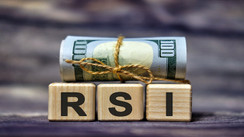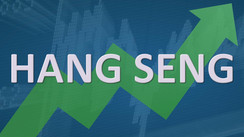Introduction to Wine Investment
In the realm of investment, a bottle of fine wine can be as promising as stocks, bonds, or mutual funds. Wine investment has emerged as an intriguing alternative investment avenue that both newcomers and experts can navigate to substantial gains. This guide will provide insight into the intricacies of wine investment, and you don't even need a cellar to get started.
The Allure of Wine as an Investment
Wine, being an unconventional investment option, offers a unique way to diversify your investment portfolio. The performance of traditional assets like stocks and bonds often follow predictable cycles of ups and downs. In contrast, the value of collectibles like fine wine is rarely tied to such market trends, often providing a counterbalance to the movements of the stock market.
Why does diversification matter so much in investment? The reason lies in the resilience it provides against market volatility. Wine, in this context, adds a refreshing dimension to portfolio diversification. The value of wine hinges on a variety of factors, including climatic conditions, harvest quality, vintage year, and consumer preferences, all of which are largely unaffected by traditional economic metrics such as interest rates, corporate earnings, or general investor sentiment. The interplay of these factors can, in turn, bolster your portfolio against broader market fluctuations.
Comparing Wine to Stock Investments: A Journey Beyond the Grapevine
The S&P 500 is widely recognized as the barometer for the performance of U.S. stocks. Similarly, the London International Vintners Exchange (Liv-ex) is the go-to reference for the fine wine market. Interestingly, the Liv-ex Fine Wine 100 saw a 270.7% increase from July 2001 to July 2021, outperforming the S&P 500 by 8 percentage points during the same period. However, this comparison is purely based on index performance without considering the reinvestment of dividends. When factoring in reinvested dividends, the S&P 500 exceeds Liv-ex by 60% over the same timeframe.
This data suggests that wine can indeed be a lucrative investment. However, it's important to remember that indices like Liv-ex and Sotheby’s encompass a broad range of wines, and the performance of one wine does not necessarily reflect the performance of the entire index.
Much like choosing a diversified portfolio of stocks, a wine investor should aim for a varied selection to prevent over-reliance on a single vintage or producer. This means focusing on investment-grade wines, which are typically more expensive than the bottles you'll find in a local store.
According to Alfonso de Gaetano, founder of Crurated, a new membership-based wine community, product quality is key. A high-quality wine maintains its value over time, giving the owner the flexibility to decide when to sell. Rarity is another critical factor affecting a wine's investment potential.
The Art of Selecting Investment-Grade Wine: Key Considerations
Several factors can impact a wine's potential for value appreciation, ranging from the intrinsic characteristics of the wine to the dynamics of the market. Regardless of the vineyard or region, certain aspects significantly influence a wine's investment potential. Here are a few critical steps to ensure you're selecting investment-grade wines:
Examine the Vintage
The vintage or the year of grape harvesting and wine production can greatly affect the quality of wine. It is vital for an investor to understand which vintages have yielded the best quality for the wine under consideration.
Assess the Wine Producer's Reputation
A wine producer's reputation can dramatically influence a wine's appreciation potential. The most investable wines often come from well-regarded producers like Domaine de la Romanée-Conti (DRC) in Burgundy, Château Lafite Rothschild in Bordeaux, or Screaming Eagle in California.
Understand Rarity and Exclusivity
Scarcity is a critical factor in a wine's value. Some wines are produced in such limited quantities that they become highly sought after, which can significantly drive up their price.
Consider the Storage Conditions
Proper storage is crucial for maintaining a wine's quality. Wines that have been properly stored in a temperature-controlled environment and have maintained their physical integrity are generally more valuable.
Monitor the Market Trends
Understanding market trends is a must for any wine investor. Demand for certain types of wines can fluctuate, and understanding these changes can help you make more informed investment decisions.
Risks and Considerations
Investing in wine is not without risks. It can be highly illiquid, as it's difficult to convert your bottles into cash quickly. Moreover, wines can be susceptible to damage, potentially reducing their value. Wine investors must also consider the cost of storing and insuring their collections. Additionally, it's a less regulated market compared to traditional investments, which means it can be a breeding ground for fraud.
To navigate the risks, an investor should consider seeking expert advice. Companies such as Vinfolio, Cult Wines, or Berry Bros & Rudd offer professional wine investment services.
As with all investments, the rule of thumb in wine investing is to diversify your holdings and avoid putting all your money in one place. An assortment of wines from different regions, producers, and vintages can help protect your investment from fluctuations in a specific wine's value.¨
The Role of Wine Funds and Investment Platforms
Another way to get into wine investment without having to actually store physical bottles is through wine funds and digital platforms. These offer a more hands-off approach, where professionals manage wine portfolios on behalf of their investors.
Wine Funds
Wine funds operate much like mutual funds, where the fund manager uses the pooled money of multiple investors to buy and sell fine wines. Funds like The Wine Investment Fund and The Fine Wine Fund are two notable examples. These funds aim to deliver a return on investment by capitalizing on price differences in the global wine market. Before investing in a wine fund, it is essential to do thorough research. Check the fund's historical performance, the experience of the fund manager, the fund's strategy, and fee structure.
Digital Platforms
Digital platforms such as Vinovest or Cult Wines offer a modern approach to wine investment. These platforms provide end-to-end services, including buying, authenticating, storing, and ultimately selling the wines. They allow investors to buy shares of individual bottles, making high-quality, expensive wines accessible to more people.
One of the main advantages of using such platforms is that they handle all the logistics, like authentication, storage, and insurance. They also provide a level of transparency that isn't always possible with traditional wine investing, as investors can track the value of their portfolio in real-time.
Tax Implications
Investing in wine does have tax implications. In many jurisdictions, profits from the sale of investment-grade wine are subject to capital gains tax. However, in some places like the UK, wine is considered a 'wasting asset', and therefore, profits are not subject to capital gains tax. It's important to understand the tax regulations in your area or consult a tax advisor before investing in wine.
The Sustainability Aspect
An increasingly important aspect of wine investment is sustainability. As climate change continues to impact wine regions around the world, wineries that adopt sustainable practices may become more valuable.
Investors are becoming more conscious of their environmental impact, and investing in sustainable wineries is one way they can align their portfolio with their values. There are certification bodies, such as Organic, Biodynamic, and Sustainable Wine (OBSW), that certify wineries based on their sustainable practices. Investing in wines from these certified wineries could prove to be a wise decision in the long term.
Future Trends and Predictions
As with any investment, keeping an eye on future trends is crucial in wine investing. Here are a few trends and predictions that could impact the wine investment landscape in the coming years.
Climate Change
As mentioned earlier, climate change is a significant factor influencing the wine industry. Warmer temperatures can affect grape quality, leading to variations in wine quality and production levels. This variability could introduce an increased level of risk for investors, especially those investing in wines from regions particularly susceptible to climate change.
On the flip side, climate change could also open up new regions for wine production, creating opportunities for savvy investors. Wineries that are adapting to climate change and implementing sustainable practices could become more valuable over time.
Growing Markets
Emerging markets, particularly in Asia, have shown increased interest in fine wines. This growing demand could lead to higher wine prices and open new investment opportunities. China, in particular, has shown a growing appreciation for fine wines, both for consumption and investment.
Technological Advances
The impact of technology on the wine industry cannot be understated. From advanced viticulture techniques to blockchain technology for wine authentication, technological advancements could significantly influence the way wine is produced, marketed, and sold.
Artificial intelligence and machine learning are being employed to predict future wine prices and identify investment opportunities. Wine investment platforms and apps are making the market more accessible to a broader audience.
Blockchain technology is also being used to verify the authenticity and provenance of wines, reducing the risk of counterfeit wines entering the market. This could increase investor confidence and potentially lead to increased investment in the sector.
Changes in Consumption Patterns
The ways people consume and appreciate wine are evolving. There is an increasing interest in organic, biodynamic, and vegan wines, which could influence investment trends.
Also, wine tourism is on the rise, with more people interested in visiting vineyards and understanding the wine-making process. This increased interest could create additional revenue streams for wineries and add another dimension to wine as an investment.
Risks
While there are exciting opportunities in wine investment, there are also significant risks. The wine market can be volatile and is influenced by factors ranging from climate change and disease to shifts in consumer taste and economic downturns. Investors should be aware of the risk of counterfeit wines, which is why buying from reputable sources or using platforms that authenticate the wines is crucial.
The physical condition of the wine is another risk factor. Improper storage can ruin even the most expensive wine, which is why professional storage is often recommended for investment-grade wines.
Lastly, investing in wine should be viewed as a long-term commitment. The wine market doesn't have the same liquidity as other investments, like stocks or bonds. It could take time to sell your wine and realize any potential gains.
Investing in wine is not for everyone, but for those with a passion for this exquisite drink, it can be a rewarding venture - both financially and personally. Just like any investment, understanding the market, doing thorough research, and seeking professional advice is key to success.
Navigating the World of Wine Investment
The fascinating journey of wine from vineyard to your glass happens via two main channels: primary and secondary markets. The primary market is a direct stream where wine flows from winemakers to consumers, often mediated by wholesale distributors who supply retailers.
Yet, the hub of activity for collectors and investors is the secondary market. Here, aficionados, wine enthusiasts, and investors buy and sell prized bottles through a variety of platforms like auction houses, wine exchanges, and brokers.
Dive into Wine Auctions
Known for their unshakeable credibility and top-tier offerings, auction houses are the trusted avenues for fine wine transactions in the secondary market. They pride themselves on their outstanding reputations, dealing only in the most premium wines.
These auctions can be lively in-person events or digital affairs, with bidding options extending to online platforms and even phone calls. Some of the elite names in the business include Sotheby’s, Christie’s, Acker Merrall & Condit, and Zachys.
Discover Online Wine Auctions
As the digital wave sweeps across industries, a select few reputable auction houses have mastered the art of online auctions. This rising trend is gaining traction rapidly.
The digital realm opens up the auctions to a larger global audience, encouraging a higher level of participation from buyers and sellers. This increased engagement also expands the variety of wines on offer in terms of type, cost, and volume. What's more, this method provides a level playing field for collectors and investors regardless of their geographical location.
Engage with a Wine Exchange
Similar to how a stock exchange operates, wine exchanges provide a platform for buyers and sellers to negotiate and strike a deal, for a small commission to the exchange. This platform facilitates easy and fair transactions, simplifying the process of wine investment for both parties.
Conclusions
Wine investment is not a straightforward endeavor. As a tangible asset with unique storage and authentication needs, it requires an entirely different approach from traditional financial instruments.
However, this unique nature also provides a series of advantages. Not only does wine have the potential to offer solid returns, but it's also relatively resistant to traditional market shocks. Moreover, the wine market is global, providing an excellent means of diversification for investors looking to hedge against specific regional economic issues.
In recent years, the wine investment landscape has changed significantly. Today, there are wine investment funds and online platforms that allow individuals to invest in wine without having to store bottles themselves. This has made wine investment more accessible to the general public.
With this increased accessibility comes the need for due diligence and research. Like all investments, wine investment involves risk. As an investor, it is essential to know what you are buying and understand the factors that can impact the value of your investment, including the provenance and condition of the wine, market trends, and the impact of climate change on wine production.
For those interested in wine, it can also be an enjoyable hobby. It allows individuals to learn more about different wine regions, wine-making techniques, and the factors that contribute to a wine's taste and quality. The pursuit of knowledge about this complex and storied beverage can be as rewarding as the potential financial returns.
For all its complexities, the world of wine investment is a fascinating one, ripe with opportunities for those willing to take the time to understand it. As with any investment, it should be approached with caution, understanding, and a keen sense of enjoyment.





